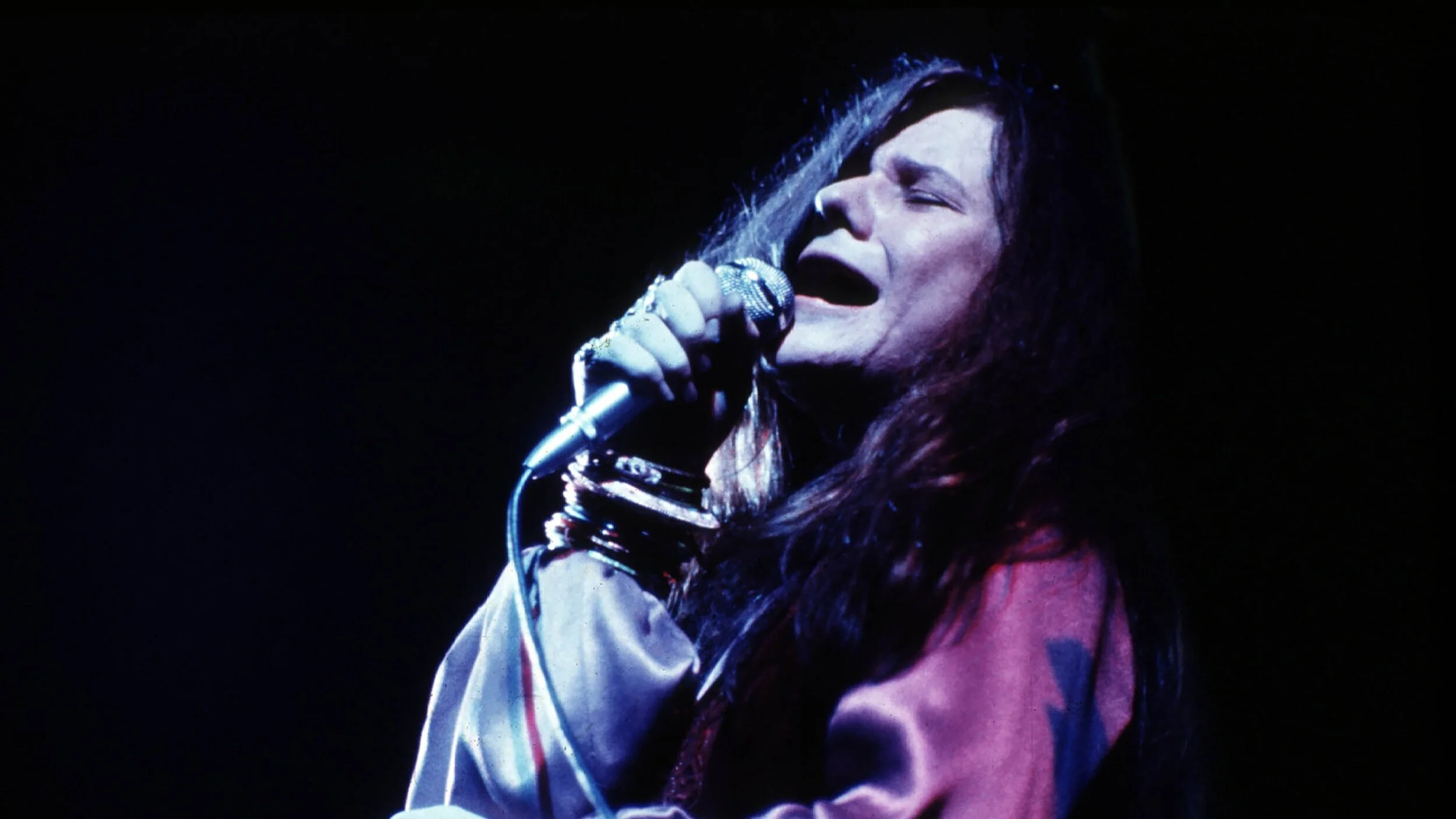Janis: Little Girl Blue
Portrait of a singer who in seeking to be true to herself found fame, but tragedy, too.
Piece of her heart: Janis Joplin in action
Janis Joplin is the subject of this documentary biography which, reaching us so soon after Asif Kapadia’s splendid film about Amy Winehouse, underlines the many parallels between these two singers both of whom would die at the age of twenty-seven but would nevertheless leave a remarkable legacy behind them. The surprise here is not that Joplin’s story should receive this treatment but that the filmmaker should be Amy J. Berg. Her 2012 documentary West of Memphis was outstanding but, dealing as it did with real-life crime and a tragic miscarriage of justice, there was no expectation that she would turn to a musical biopic of a standard kind. That is very much what Janis: Little Girl Blue is, but it should also be said that Berg’s work here is thoroughly professional and engaging.
The format is what has become the traditional one in this documentary genre: a chronological history using much old footage interspersed with comments by people who knew Janis Joplin ranging from siblings and high school friends to the many in the music business who played a part in her career. The one comparative novelty is that Berg makes much good use of letters from Janis read by Chan Marshall but, as with Amy Winehouse, there is a remarkable amount of material available on film showing not only Janis in performance but behind the scenes. She was born in Port Arthur, Texas, in 1943 and, as someone who was often teased over her looks, she compensated by pushing limits and then going her own way. Having started to sing at seventeen, this took her to San Francisco where she eventually found a place in the counter culture of the sixties.
This was the setting in which she could explore her sexuality (men seem to play the greater role here but there were women too). However, it was also the context in which working with bands led to drink and drugs and even more so later when after acclaim at Monterey in 1967 she moved on to build up her work as a soloist. Joplin was articulate (as interview material here readily confirms) and, like Winehouse again, she very much wanted to express herself through her music. Emotional honesty was what she sought in her songs and in her life but, too desperate for love from all, the end result (albeit from a drug overdose at a time when she seemed to have broken her habit) was perhaps foreseeable.
This well-judged film concludes that her fate was arguably the price of embracing the kind of art that enabled her to be most fully herself.
MANSEL STIMPSON
Featuring Chan Marshall (narrator), Laura Joplin, Michael Joplin, Dick Cavett, Kris Kristofferson, D.A. Pennebaker, Country Joe McDonald, Dave Getz, Melissa Etheridge.
Dir Amy J. Berg, Pro Alex Gibney, Amy J. Berg, Katherine LeBlond and Jeff Jampol, Screenplay Amy J. Berg, Ph Francesco Carrozzini, Paula Huidobro and Jenna Rosher, Ed Billy McMillin, Garret Price and Joe Beshenkovsky, Music Joel Shearer.
PBS/Content Media Corporation/Disarming Films/Jigsaw Productions etc.-Dogwoof.
103 mins. USA/UK. 2015. Rel: 5 February 2016. Cert. 15.


